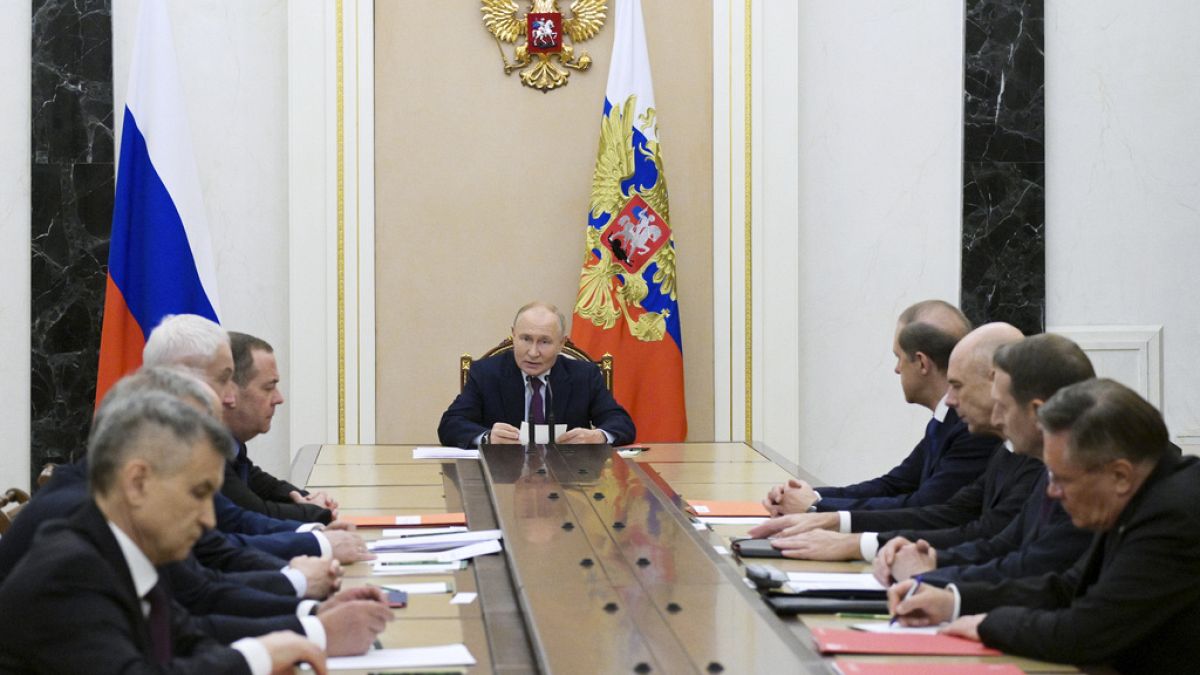The Kremlin’s recent revision of its nuclear doctrine has sparked concerns about the potential escalations in the ongoing conflict between Russia and Ukraine. The changes, announced during a meeting of Russia’s Security Council, significantly lower the threshold for the potential use of Russia’s nuclear arsenal. Kremlin spokesperson Dimitry Peskov emphasized that the alterations are meant to deter Western countries from supporting any attacks on Russia. The revision also warns that attacks on Russia, supported by a nuclear power, would be considered a “joint attack” on the country, indicating the seriousness of the new doctrine.
The revised nuclear doctrine aims to discourage Western countries from approving Ukraine’s use of their weapons to strike deep into Russian territory. This move comes as Ukrainian President Volodymyr Zelenskyy has been seeking clearance from Washington to launch long-range missiles at Russian targets. The Biden administration, however, has urged Ukraine to clarify its combat objectives before granting permission for such actions. The tension between Russia and Ukraine has escalated since Russian President Vladimir Putin initiated a full-scale invasion in 2022. Putin and other Kremlin officials have previously warned the West of nuclear consequences in response to increased support for Ukraine.
In response to questions about potential nuclear retaliation, Putin refrained from specifying a direct response and instead highlighted the conditions under which nuclear weapons may be used. Putin mentioned that the revised doctrine provides more detailed guidelines for the use of nuclear weapons, including the possibility of using them in case of an aerial attack. This vague reference may be interpreted as a warning to Western countries considering authorizing longer-range missile strikes against Russia. Earlier statements from Putin also cautioned the US and NATO allies against allowing Ukraine to use Western-supplied weapons in a way that could lead to a direct conflict between Russia and NATO.
The implications of Moscow’s revised nuclear doctrine are clear: any actions deemed as a threat to Russia’s sovereignty could trigger a nuclear response. By explicitly stating the conditions under which nuclear weapons may be used, Russia is sending a strong message to its adversaries about the potential consequences of military escalation. The revision also serves as a strategic move to dissuade Western countries from supporting Ukraine in a manner that could provoke a significant response from Russia. The shift in Russia’s nuclear policy underscores the seriousness of the situation and the need for diplomatic efforts to de-escalate tensions in the region.
As the conflict between Russia and Ukraine continues to unfold, the specter of nuclear warfare looms large over the region. The Kremlin’s recent revision of its nuclear doctrine has raised concerns about the potential consequences of any further escalation in the conflict. By lowering the threshold for the possible use of nuclear weapons, Russia is sending a stark warning to its adversaries about the risks of military action. The international community must closely monitor developments in the region and work towards finding peaceful solutions to the ongoing crisis. Diplomacy and dialogue remain critical in preventing further escalation and ensuring the security and stability of all parties involved.











